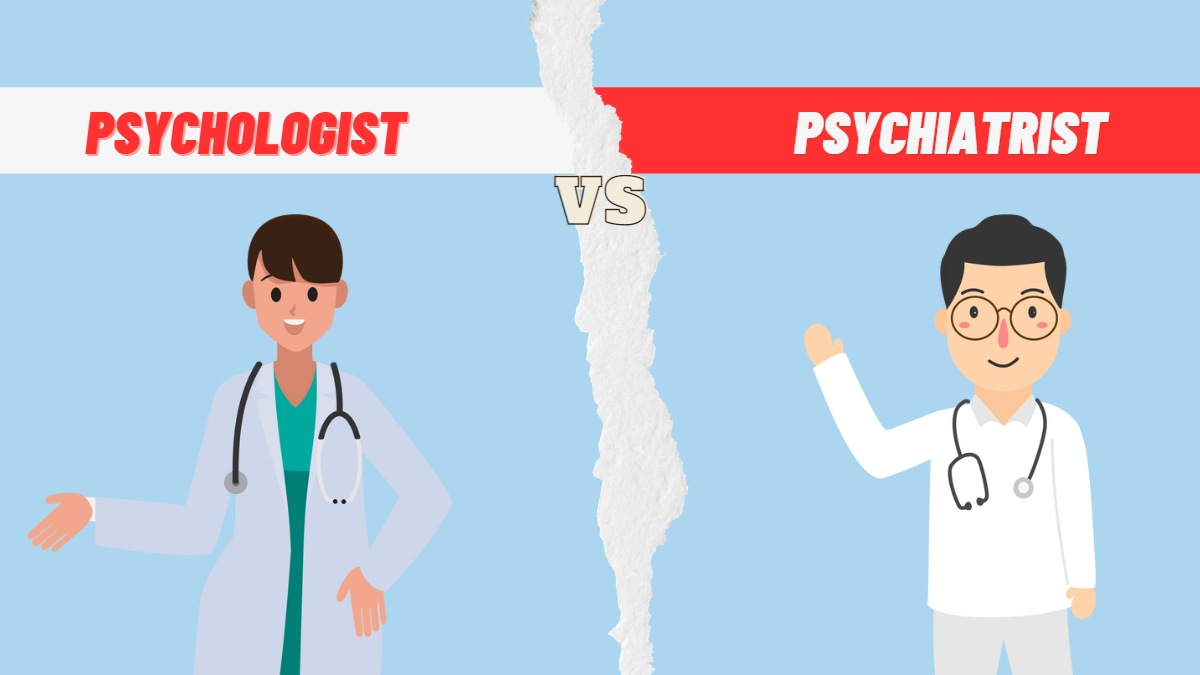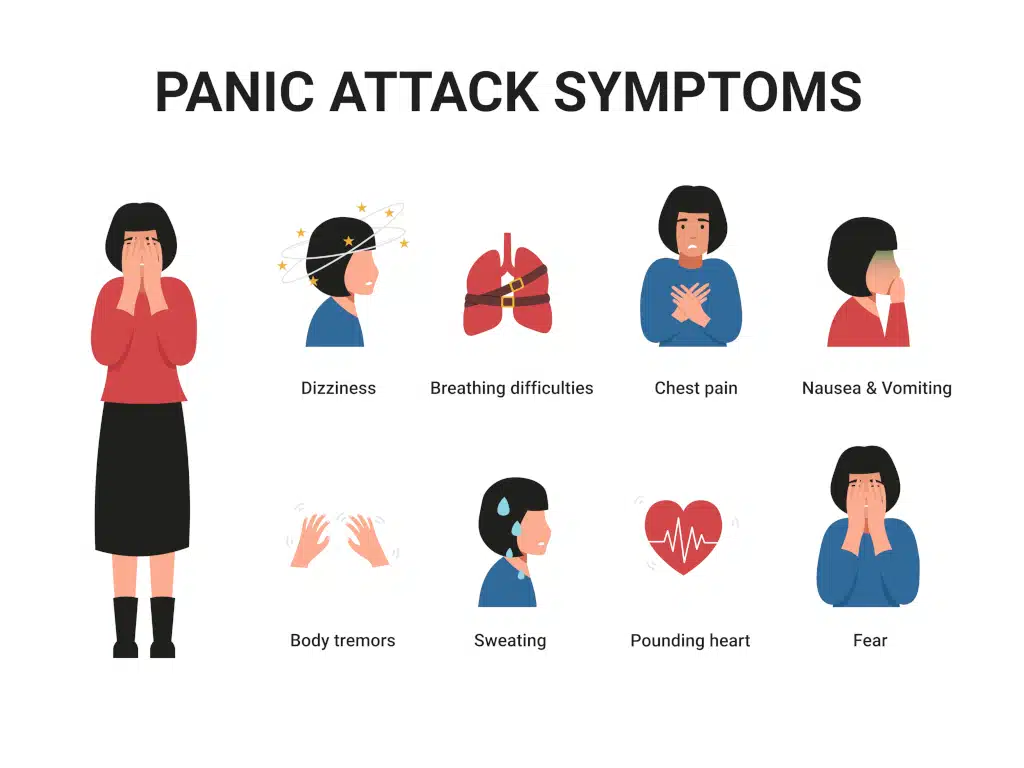Psychologist vs. Psychiatrist: Key Differences
When it comes to your mental health care in Canada, understanding the roles and responsibilities of psychologists and psychiatrists is crucial. While they are both mental health professionals, psychologists and psychiatrists have distinct differences in their approaches and expertise.
In this article, we will explore the psychologist and psychiatrist difference. By gaining insight into these differences, you can make informed decisions about your mental health care, ensuring that you receive the appropriate support and treatment.
Exploring the Roles: What Psychologists and Psychiatrists Do
Understanding a Psychologist’s Responsibilities
Psychologists play a crucial role in assessing, diagnosing, and treating mental health disorders through counseling and psychotherapy. They work closely with individuals, couples, families, and groups to address a wide range of issues such as anxiety, depression, behavioral problems, and relationship difficulties.
Psychologists employ evidence-based therapeutic techniques to facilitate positive change in their clients. Some of these techniques include:
- Cognitive-behavioral therapy (CBT) to help individuals identify and modify negative thought patterns and behaviors
- Psychoanalysis to explore the unconscious mind and resolve deep-seated conflicts
- Humanistic therapy to promote self-awareness, personal growth, and self-acceptance
Understanding a Psychiatrist’s Responsibilities
Psychiatrists, as medical doctors specializing in mental health, have distinct responsibilities in the field. They possess the expertise to assess, diagnose, and treat mental health disorders, including the ability to prescribe medications.
Collaboration with other healthcare professionals, including psychologists, is a common practice for psychiatrists. By working together, they develop comprehensive treatment plans that integrate therapeutic interventions and medical management strategies.
Psychiatrists employ various therapeutic techniques, which may include:
- Medication management to prescribe and monitor the effectiveness of psychiatric medications
- Electroconvulsive therapy (ECT) as a treatment option for severe depression or other mental health conditions
- Transcranial magnetic stimulation (TMS) to stimulate specific regions of the brain to alleviate symptoms of depression and anxiety
The Academic and Training Paths
Becoming a psychologist in Canada requires a comprehensive academic and training pathway. Psychologists undergo extensive education and rigorous clinical training to develop the necessary skills and expertise in the field of psychology.
In order to become a psychologist in Canada, individuals typically need to complete a doctoral degree in psychology. This involves several stages of education, starting with an undergraduate degree in psychology or a related field.
After completing their undergraduate degree, aspiring psychologists pursue a master’s degree in psychology to further specialize and gain a deeper understanding of the discipline. The master’s program provides an opportunity to delve into specific areas of interest within psychology and develop research skills.
Following the master’s degree, individuals go on to obtain a Ph.D. or Psy.D. in psychology. This advanced level of education focuses on research, clinical practice, and the application of psychological theories. During this stage, students typically undertake their own research projects and clinical practicum experiences.
Supervised clinical training is an integral part of the process, allowing future psychologists to gain practical experience and develop their therapeutic skills. This involves working directly with clients under the supervision of experienced psychologists.
Upon completion of their academic and clinical training, psychologists must obtain licensure from the provincial regulatory bodies. This ensures that they meet the professional standards and ethical guidelines necessary to practice psychology in Canada.
On the other hand, psychiatrists follow a different academic and training path. As medical doctors, they specialize in psychiatry, which combines the study of mental health and physical health.
Psychiatrists complete medical school, which typically takes four years, and earn a medical degree (M.D.). After graduation, they pursue a residency program in psychiatry, which involves specialized training in mental health disorders, diagnosis, and treatment.
This comprehensive training equips psychiatrists with a deep understanding of both the psychological and biological aspects of mental health. They are trained to diagnose mental health disorders, prescribe medications, and develop holistic treatment plans.
Overall, psychologists and psychiatrists have distinct academic and training requirements. Psychologists focus on the study of psychology, while psychiatrists receive medical training with a specialization in psychiatry. Both professions play crucial roles in the field of mental health, ensuring individuals receive comprehensive care tailored to their specific needs.
Psychologist and Psychiatrist Difference in Practice Settings
Psychologists and psychiatrists work in different practice settings, and the environment in which they practice can influence the type of services they provide. Understanding these practice settings is important when considering mental health care options.
Clinical vs. Institutional Environments
Psychologists often work in clinical settings, such as hospitals, mental health clinics, and universities. These settings allow psychologists to provide counseling and psychotherapy services to individuals, couples, families, and groups.
On the other hand, psychiatrists can work in clinical settings but also have the option to work in institutional environments, including psychiatric hospitals and government agencies. In these settings, psychiatrists can provide comprehensive mental health care, including medication management.
Private Practice Considerations
Both psychologists and psychiatrists have the option to establish private practices, which allows them to offer individualized care to their clients. When considering private practice, psychologists and psychiatrists must consider various factors, including managing administrative tasks, marketing their services, and creating a comfortable therapeutic environment.
Interdisciplinary Teams and Collaboration
Both psychologists and psychiatrists value collaboration and often work as part of interdisciplinary teams. These teams may include social workers, nurses, occupational therapists, and other healthcare professionals. By collaborating with experts from different disciplines, psychologists and psychiatrists can provide comprehensive mental health care that addresses the needs of the whole person.
Prescription Authority and Medication Management
One significant difference between psychologists and psychiatrists is the prescription authority. In Canada, psychologists do not have the authority to prescribe medication. However, they can work collaboratively with psychiatrists or other medical doctors to ensure comprehensive treatment for their clients.
On the other hand, psychiatrists, being medical doctors, have the authority to prescribe medications to address mental health disorders. They play a crucial role in medication management and often monitor the effectiveness and potential side effects of prescribed medications.
Conclusion
Understanding the differences between psychologists and psychiatrists is essential for making informed decisions about your mental health care. Psychologists primarily focus on counseling and psychotherapy, providing support for individuals, couples, families, and groups dealing with various mental health issues such as anxiety, depression, and relationship difficulties.
Whether you seek counseling and therapy or require a diagnosis and medication management, both professionals play a vital role in ensuring you receive the appropriate care for your mental health needs.










